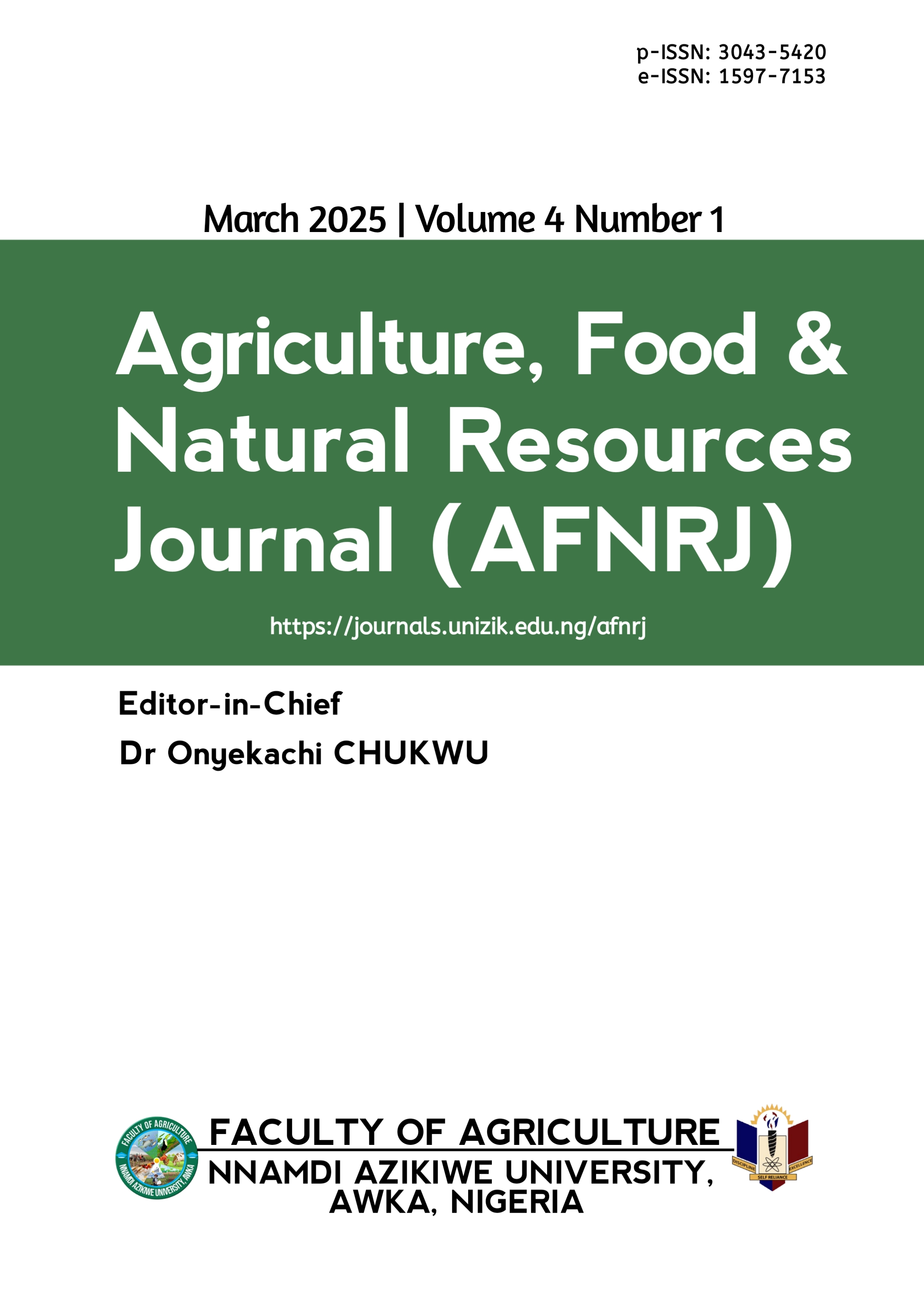Effect of sustainable agricultural intensification practices on cost efficiency of smallholder crop farmers in southeastern Nigeria
DOI:
https://doi.org/10.5281/zenodo.15112911Keywords:
Cost function, Farmers, Smallholder, Sustainable intensification, Technology adoptionAbstract
This study investigated the effect of sustainable agricultural intensification practices on the cost efficiency of smallholder crop farmers in southeastern Nigeria. A multi-stage random sampling technique was employed in selecting 360 respondents for the study. Simple descriptive tools (mean, frequencies, and percentages) as well as inferential statistics (stochastic frontier cost function) were employed in achieving the objectives. The maximum likelihood estimates of the stochastic cost function revealed that the explanatory variables; farm size, labor costs, fertilizer expenses, and capital investments were significantly and positively related to cost efficiency in the study area, while farming experience (p<0.05), years of education (p<0.05), age (p<0.01), distance to market (p<0.01), and adoption index (p<0.01) were significant and positively related to cost inefficiency. The cost efficiency distribution ranges from 0.10 – 0.77 with a mean of 0.136. This implies that farmers spent about 36% above the minimum cost of producing a unit of their output. The study concludes that multiple adoption of sustainable intensification practices increased the cost of production in the study area. The study thus recommends that farmers should be encouraged to leverage the cost-saving benefits of package adoption by training them on how to efficiently combine their inputs.
Downloads
Published
Issue
Section
License

This work is licensed under a Creative Commons Attribution 4.0 International License.
which permits unrestricted use, distribution, and reproduction in any medium, provided the original author and source are credited.
Authors retain the copyright of their published work in the AFNRJ.





